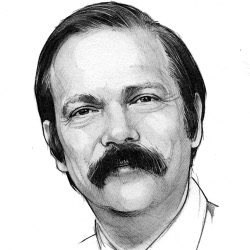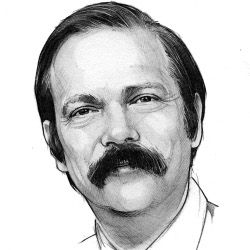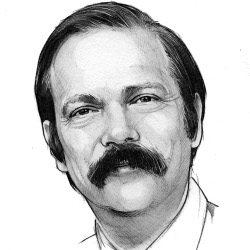When Communications relaunched in July 2008, the issue included a "Viewpoint" column by Rick Rashid, entitled "Image Crisis: Inspiring a New Generation of Computer Scientists." Has anything changed in that regard in the last 17 months?
Moshe Y. Vardi
The Financial Meltdown and Computing
For many of us, the past year has been one of the most unsettling in our lifetime. In the late 1980s and early 1990s, we watched communism collapse of its own dead weight. In late 2008, we saw capitalism nearly crumble. Lehman Brothers, a major U.S. investment bank, declared bankruptcy last September, sending the world's financial system into a tailspin. Only a massive intervention by central banks saved the system from collapse.
Open, Closed, or Clopen Access?
A frequent question I hear about Communications, and about ACM publishing in general, involves its access model. I am asked: "Why don't you adopt the open-access model?" Good question! Why don't we?
Conferences vs. Journals in Computing Research
An old joke tells of a driver, returning home from a party where he had one drink too many, who hears a warning over the radio about a car careening down the wrong side of the highway. "A car?" he wondered aloud, "There are lots of cars on the wrong side of the road!"
I am afraid that driver is us, the computing-research community.
The 2008 presidential campaign slogan "Yes, We Can" is the English translation of the United Farm Workers' 1972 slogan "Sí, se puede," or "Yes, it can be done."
A rabbinical story tells about an angry reader who stormed into a newspaper office waving the day's paper, asking to see the editor of the obituary column.
Let Us – Together – Make CACM Exciting
It's been four months since we launched the "new CACM." By now, I hope it is quite clear to our readers that the revamped flagship publication of ACM has undergone a rather dramatic transformation in both appearance and content.
‘Where Do You Come From? And Where Are You Going?’
The noted management consulting firm Booz Allen Hamilton recently issued a report identifying the world's 10 most enduring institutions of the 20th and 21st centuries.
CACM: Past, Present, and Future
The French adage "Plus ça change, plus c'est la même chose," or, the more things change, the more they stay the same, still rings true today. Reading over the essays of my predecessors, one recognizes the thread that runs through all of them, which is the constant need of CACM to reinvent itself. In fact, I discovered an April 24, 1964 report from a Commission of Thoughtful Persons to the ACM Council that stated "It was felt that Communications was becoming too much of a journal and that a re-evaluation is in order." I suspect this ongoing need to rethink CACM, a flagship publication for professionals working in a fast-moving and ever-changing field, will stay with us for the foreseeable future.
A Rice University Perspective on Software Engineering Licensing
In June 1998, the Texas Board of Professional Engineers adopted software engineering as a distinct discipline under which engineering licenses can be issued. The motivation for this decision was the expectation that licensing and the associated regulation of the software engineering profession would lead to substantive improvements in the education of computer software professionals and […]
Shape the Future of Computing
ACM encourages its members to take a direct hand in shaping the future of the association. There are more ways than ever to get involved.
Get Involved




